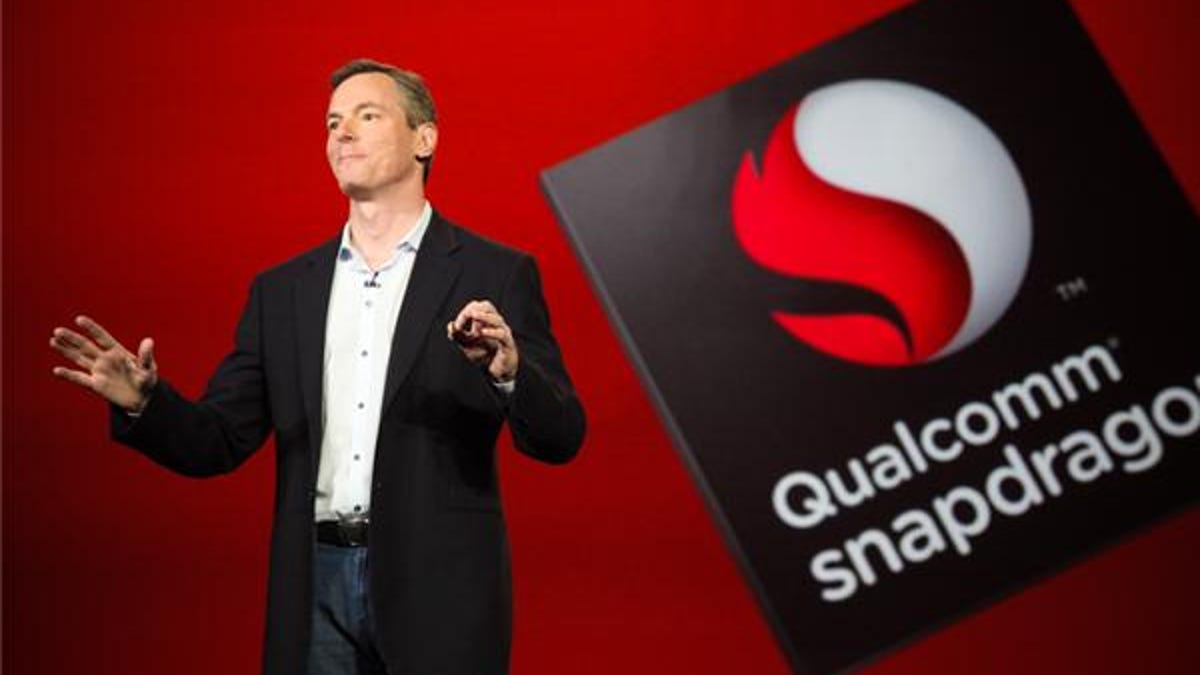Smartphone growth slowing? Not according to Qualcomm
The maker of mobile chips reports record results for its fiscal first quarter and boosts its outlook for the full year, saying it's seeing growing global demand for phones using its processors.

Many questions have emerged about slowing growth in the global phone market, but chipmaker Qualcomm doesn't appear to be having any problems.
The San Diego company, which helped popularize the CDMA technology used in cell phones, today reported record results for its fiscal first quarter. It also boosted its expectations for fiscal 2013 revenue and earnings and provided a better-than-anticipated forecast for the current period.Qualcomm Chief Executive Paul Jacobs noted that revenue, adjusted earnings, and chipset shipments all set records in the quarter ended Dec. 30. He attributed the results to "growing global demand for smartphones" and the company's portfolio of 3G and 4G LTE processors.
"Our broad licensing partnerships and extensive chipset roadmap, including our recently announced best-in-class Qualcomm Snapdragon 800 and 600 processors, position us well for strong growth, and we are pleased to be raising our revenue and earnings guidance for fiscal 2013," he said in a press release.
Qualcomm isn't exactly a household name, but the odds are fairly high that many homes have at least one device that uses its chips. The company dominates the market for providing wireless processors, like those in 3G CDMA and 4G LTE devices, and it also makes application processors for smartphones and tablets. Its chips are used in Apple's newest devices, and it also powers all Windows Phone 8 products. The newest BlackBerry products introduced todayalso use Qualcomm chips.
While Qualcomm has been flying high on a strong mobile market, there have been concerns of late that the industry's growth may be slowing. Samsung and Apple both sounded more cautious tones during their recent earnings reports. Samsung, for one, noted that market conditions would be a little tougher this year amid slowing smartphone market growth and stronger competition.
Qualcomm, though, remains one of the only LTE providers in the industry, and its diverse customer base should help buffer it from weakness at any one company. Its outlook for the current period and year seem to support that claim.
"In general, the market is growing like crazy," Qualcomm President Steve Mollenkopf told CNET.
Mollenkopf noted that demand is strong for both high- and low-end phones. In the U.S., companies are increasingly including 4G LTE in their products, and emerging markets are benefiting from the transition to 3G from 2G. Mollenkopf said Qualcomm's 3G and LTE multimode chip shipments jumped 90 percent from the September quarter to the December period.
"It's phenomenal growth," he said, adding that the company believes its market share is increasing with handset vendors.
Qualcomm today projected fiscal second-quarter adjusted earnings of $1.10 to $1.18 a share on revenue of $5.8 billion to $6.3 billion. Analysts polled by Thomson Reuters expect adjusted earnings of $1.10 a share on revenue of $5.88 billion.
The company also boosted its outlook for the fiscal year. It now expects adjusted earnings of $4.25 to $4.45 a share, up from November's forecast for $4.12 to $4.32 a share. It also anticipates revenue of $23.4 billion to $24.4 billion, up from its earlier expectation for $23 billion to $24 billion.
For the fiscal first quarter, ended Dec. 30, Qualcomm reported net income of $1.91 billion, or $1.09 a share, up from $1.4 billion, or 81 cents, in the year-earlier period. Excluding certain items like acquisition-related charges, earnings rose to $1.26 from 97 cents.
Qualcomm in November had projected adjusted earnings of $1.08 to $1.16 a share.
Revenue rose 29 percent to a record $6.02 billion, at the high end of Qualcomm's estimate of $5.6 billion to $6.1 billion.
The company shipped 182 million chipsets during the period, up 17 percent from the previous year and above its projections for 168 million to 178 million.
For the second quarter, Qualcomm expects to ship 163 million to 173 million chipsets, up 7 percent to 14 percent from the same period a year ago.
Update, 3:50 p.m. PT: Adds comments from Qualcomm's president.

